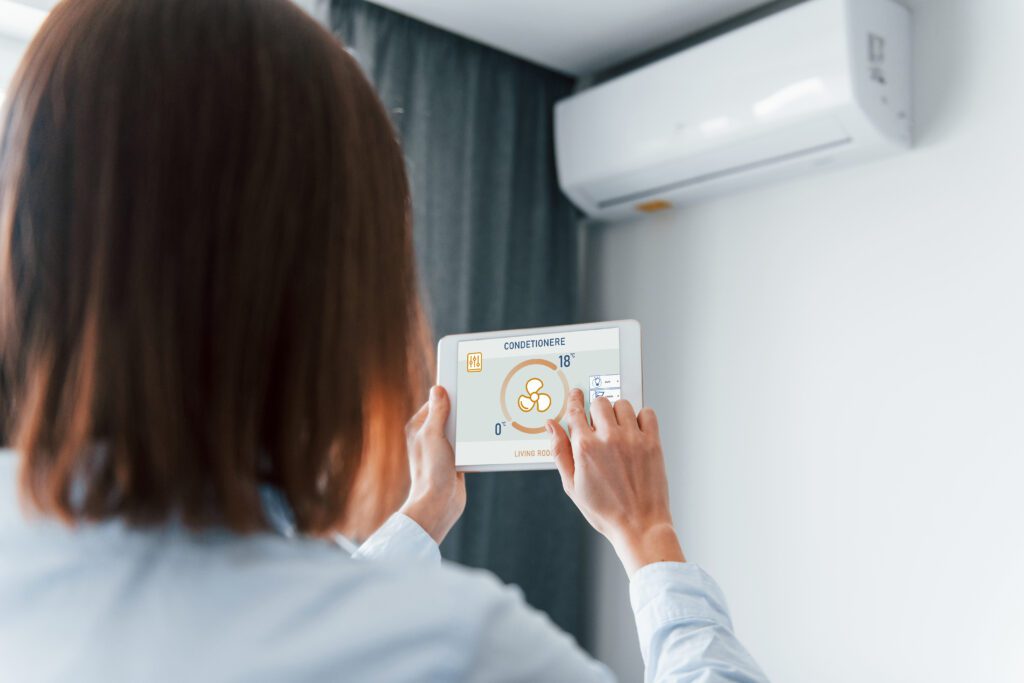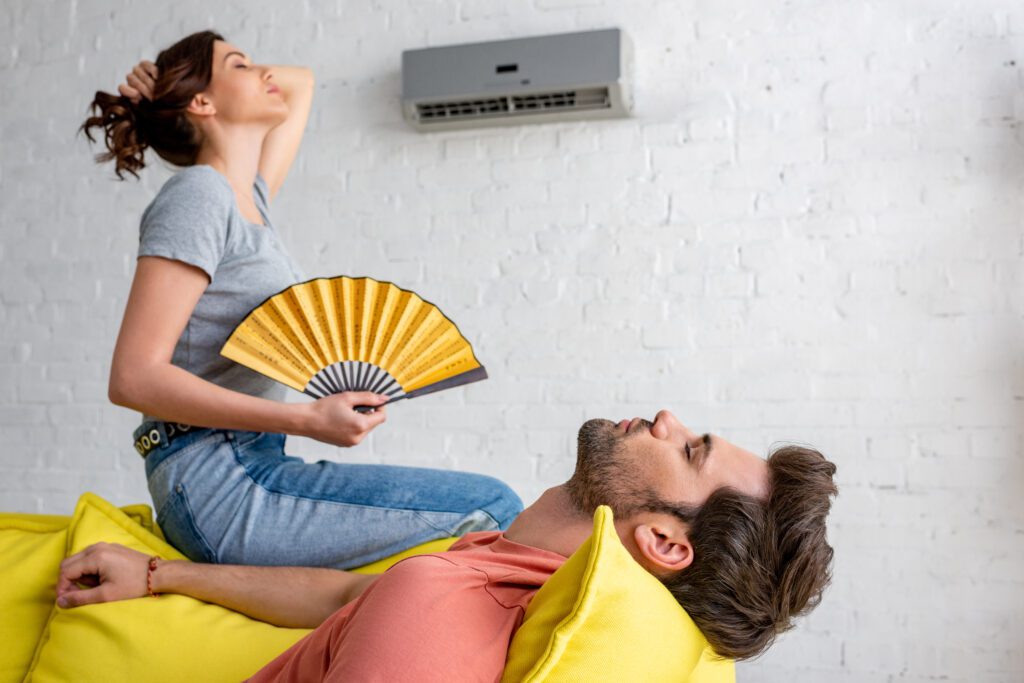Summer is a time for sunny days, outdoor activities, and plenty of warmth. However, it’s also a season that brings some unique challenges to maintaining good air quality indoors. The combination of higher temperatures and increased humidity can create the perfect environment for indoor air pollutants to thrive. In this article, we will explore the importance of indoor air quality during summer and provide you with practical strategies to ensure that the air you breathe inside your home is clean and healthy.
Understanding the Importance of Indoor Air Quality
Before we delve into the impact of summer on indoor air quality, it’s crucial to understand why it matters in the first place. Poor indoor air quality can have severe health implications, particularly for individuals who spend a significant amount of time indoors. According to the Environmental Protection Agency (EPA), the levels of indoor air pollutants can be 2 to 5 times higher than outdoor levels. Exposure to these pollutants can lead to various health issues, including allergies, respiratory problems, and even cardiovascular diseases.
Health Implications of Poor Indoor Air Quality
Poor indoor air quality can have a detrimental effect on our overall well-being. Inhalation of indoor air pollutants can trigger or worsen asthma symptoms, cause allergic reactions, and even increase the risk of respiratory infections. Long-term exposure to these pollutants has also been linked to more serious health conditions such as lung cancer and heart disease. It’s essential to take proactive steps to improve indoor air quality, especially during the summer months when certain pollutants are more prevalent.
The Impact of Summer on Indoor Air Quality
The summer season brings its own set of challenges when it comes to maintaining good indoor air quality. Hot and humid weather creates an ideal breeding ground for mold and mildew, which can release spores into the air and lead to respiratory issues. Furthermore, increased outdoor activities and open windows and doors during summer can introduce outdoor pollutants such as pollen, dust, and chemicals into your home. Understanding these impacts is crucial for implementing effective strategies to combat indoor air pollution during the summer season.
One of the main culprits of poor indoor air quality during the summer is the presence of mold and mildew. These microscopic organisms thrive in warm and moist environments, making the summer heat and humidity the perfect breeding ground for their growth. When mold and mildew release spores into the air, they can be inhaled and cause respiratory problems, especially for individuals with allergies or asthma. It’s important to keep indoor humidity levels in check during the summer months to prevent the growth of mold and mildew.
In addition to mold and mildew, the summer season also brings an increase in outdoor activities, leading to the introduction of outdoor pollutants into your home. When you open your windows and doors to let in the fresh summer breeze, you may also be inviting pollen, dust, and chemicals from the outside environment. These pollutants can accumulate indoors and contribute to poor indoor air quality. Regular cleaning and dusting can help reduce the presence of these allergens and improve the air you breathe.
Identifying Common Indoor Air Pollutants in Summer

To effectively improve indoor air quality during summer, it’s essential to be aware of the common pollutants that you may encounter. Let’s take a closer look at some of the primary culprits:
Volatile Organic Compounds (VOCs)
VOCs are chemicals that can be found in various household products such as cleaning supplies, paints, and furniture. These compounds can evaporate at room temperature and contribute to indoor air pollution. Some VOCs are known to have short-term and long-term health effects, making it important to minimize exposure to them.
It’s worth noting that VOCs can not only be emitted from products inside your home but also from external sources such as vehicle exhaust and industrial emissions. Being mindful of outdoor air quality can also help in reducing overall VOC exposure.
Dust and Allergens
Dust is an inevitable part of any indoor environment. During summer, when windows and doors are open more frequently, dust and allergens from the outdoors can easily find their way inside. Dust mites, pet dander, and pollen can trigger allergies and negatively impact the air quality in your home.
To combat dust and allergens, regular cleaning and vacuuming are crucial. Investing in a high-efficiency particulate air (HEPA) filter for your HVAC system can also help in trapping these particles and improving indoor air quality significantly.
Humidity and Mold Growth
High humidity levels can create an environment suitable for mold and mildew growth. These fungi can release spores into the air, leading to respiratory problems and allergic reactions. It’s important to control indoor humidity levels to prevent mold growth and maintain a healthier indoor environment.
In addition to using dehumidifiers, ensuring proper ventilation in areas prone to moisture buildup like bathrooms and kitchens can help in reducing the risk of mold growth. Regularly inspecting and addressing any water leaks or damage promptly is also essential in preventing mold from becoming a persistent issue in your home.
Simple Strategies to Enhance Indoor Air Quality

Improving indoor air quality doesn’t have to be complicated or expensive. There are several simple strategies that you can implement to make a significant difference:
Indoor air quality is crucial for maintaining a healthy living environment. By following some basic tips and tricks, you can ensure that the air you breathe in your home is clean and free of pollutants.
Regular Cleaning and Dusting
Regular cleaning and dusting help eliminate dust, allergens, and other pollutants from your home. Vacuum carpets and upholstery regularly and use microfiber cloths when dusting surfaces to capture the smallest particles effectively.
In addition to vacuuming and dusting, it’s also essential to wash bedding and curtains frequently to reduce the buildup of dust mites and other allergens. By maintaining a clean living space, you can significantly improve the overall air quality in your home.
Proper Ventilation Techniques
Proper ventilation is crucial for maintaining good air quality. Make sure that your home is adequately ventilated by opening windows and using exhaust fans in areas prone to moisture, such as kitchens and bathrooms. This allows fresh air to circulate and helps remove indoor pollutants.
Consider investing in an air purifier to further enhance the air quality in your home. Air purifiers are designed to filter out particles and pollutants, providing you with clean and fresh air to breathe. Place them in commonly used areas such as the living room or bedroom for optimal results.
Controlling Indoor Humidity Levels
Keeping indoor humidity levels in check is especially important during the summer months. Use dehumidifiers or air conditioners to reduce excess moisture, particularly in basements and other areas prone to dampness. This helps prevent mold growth and creates a more comfortable and healthy indoor environment.
Another way to control humidity levels is by using houseplants. Certain plants, such as peace lilies and spider plants, can help naturally regulate humidity levels in your home. Not only do they add a touch of greenery to your space, but they also act as natural air purifiers, enhancing the overall air quality.
Advanced Solutions for Indoor Air Quality Improvement

In addition to the simple strategies mentioned earlier, there are more advanced solutions available for those looking to enhance their indoor air quality even further:
Air Purifiers and Their Benefits
Air purifiers are designed to remove pollutants and improve indoor air quality. They can effectively filter out harmful particles, such as dust, allergens, and VOCs, providing cleaner air for you and your family to breathe. When choosing an air purifier, consider the size of the room and the specific pollutants you want to target.
But did you know that air purifiers have other benefits beyond improving air quality? They can also help alleviate symptoms of allergies and asthma. By removing allergens and irritants from the air, air purifiers can reduce sneezing, coughing, and wheezing, allowing you to breathe more easily. Additionally, air purifiers can help eliminate unpleasant odors, such as cooking smells or pet odors, leaving your home smelling fresh and clean.
Dehumidifiers for Mold Prevention
If your home is consistently plagued by high humidity levels, investing in a dehumidifier can be a game-changer. Dehumidifiers extract excess moisture from the air, making it less hospitable for mold and mildew. By reducing mold growth, you can effectively prevent respiratory issues and improve overall indoor air quality.
But did you know that dehumidifiers can also help protect your furniture and belongings? High humidity levels can cause wood to warp, paint to peel, and electronics to malfunction. By maintaining optimal humidity levels with a dehumidifier, you can prolong the lifespan of your furniture and prevent costly damage. So not only will you be improving your indoor air quality, but you’ll also be safeguarding your investments.
Using Plants to Naturally Purify Air
Plants not only add beauty to your home but can also help improve indoor air quality. Certain plants, such as spider plants, snake plants, and peace lilies, have been found to be effective at removing toxins from the air. Incorporating indoor plants can serve as a natural and aesthetically pleasing way to purify the air inside your home.
But did you know that indoor plants can also boost your mood and productivity? Studies have shown that being surrounded by greenery can reduce stress levels and increase feelings of calmness and well-being. Additionally, plants can improve concentration and memory, making them a great addition to home offices or study areas. So not only will you be improving your indoor air quality, but you’ll also be creating a more pleasant and productive living environment.
By understanding the importance of indoor air quality and implementing the strategies mentioned above, you can ensure a healthier and more comfortable living environment for you and your loved ones, even during the summer months. So, take the necessary steps to improve your indoor air quality today and breathe easy all year long!



